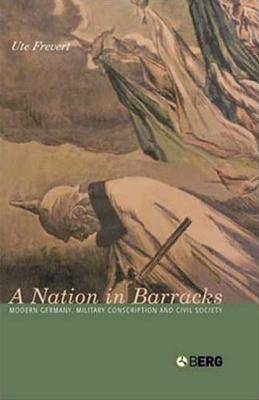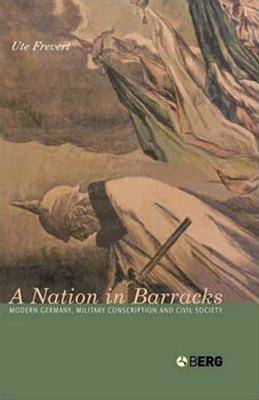
Je cadeautjes zeker op tijd in huis hebben voor de feestdagen? Kom langs in onze winkels en vind het perfecte geschenk!
- Afhalen na 1 uur in een winkel met voorraad
- Gratis thuislevering in België vanaf € 30
- Ruim aanbod met 7 miljoen producten
Je cadeautjes zeker op tijd in huis hebben voor de feestdagen? Kom langs in onze winkels en vind het perfecte geschenk!
- Afhalen na 1 uur in een winkel met voorraad
- Gratis thuislevering in België vanaf € 30
- Ruim aanbod met 7 miljoen producten
Zoeken
A Nation in Barracks
Modern Germany, Military Conscription and Civil Society
Frevert Ute, Ute Frevert
Paperback | Engels
€ 79,95
+ 159 punten
Uitvoering
Omschrijving
'German militarism' has long been understood to be a central element of German society. Considering the role of militarism, this book investigates how conscription has contributed to instilling a strong sense of military commitment amongst the German public.A Nation in Barracks tells the story of how military-civil relations have evolved in Germany during the last two hundred years. Focusing on the introduction and development of military conscription, the author looks at its relationship to state citizenship, nation building, gender formation and the concept of violence. She begins with the early nineteenth century, when conscription was first used in Prussia and initially met with harsh criticism from all aspects of society, and continues through to the two Germanies of the post-1949 period. The book covers the Prussian model used during World War I, the Weimar Republic when no conscription was enforced and the mass military mobilization of the Third Reich.Throughout this comprehensive account, acclaimed historian Ute Frevert examines how civil society deals with institutionalized violence and how this affects models of citizenship and gender relations.
Specificaties
Betrokkenen
- Auteur(s):
- Uitgeverij:
Inhoud
- Aantal bladzijden:
- 288
- Taal:
- Engels
Eigenschappen
- Productcode (EAN):
- 9781859738863
- Verschijningsdatum:
- 1/09/2004
- Uitvoering:
- Paperback
- Formaat:
- Trade paperback (VS)
- Afmetingen:
- 175 mm x 223 mm
- Gewicht:
- 508 g

Alleen bij Standaard Boekhandel
+ 159 punten op je klantenkaart van Standaard Boekhandel
Beoordelingen
We publiceren alleen reviews die voldoen aan de voorwaarden voor reviews. Bekijk onze voorwaarden voor reviews.









